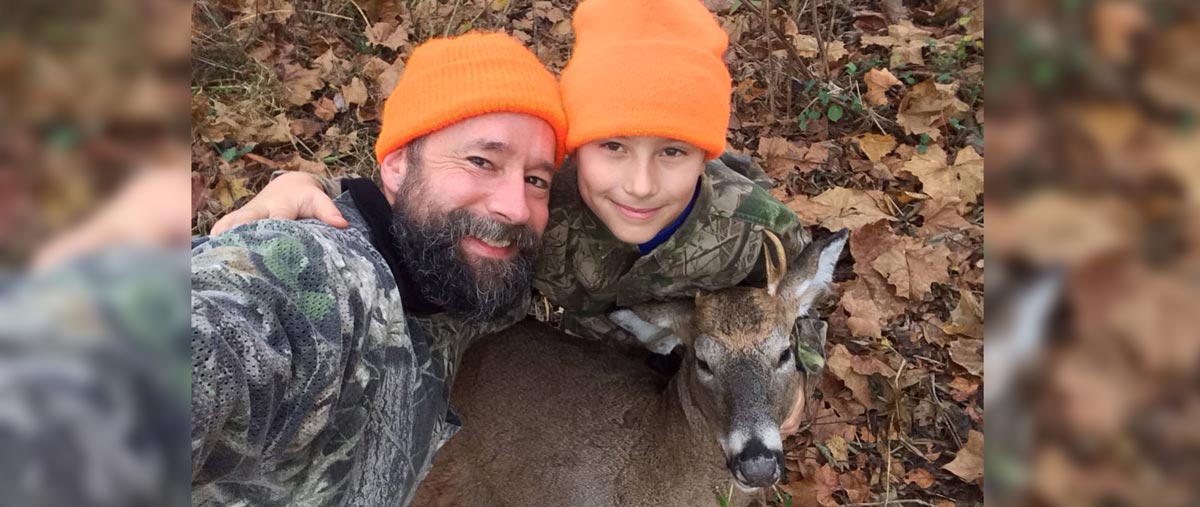Below is an article published on April 8 by the editorial board of the Franklin News-Post, a newspaper published in Rocky Mount, Virginia.
If you worry about endangered bumblebees and declining songbird populations, there’s another threatened species you should fret over: hunters.
In fact, the hunter is a keystone species of Virginia’s outdoors, and continued declines are worrying for everyone who supports wildlife conservation. Fees and taxes levied on hunting pay for a large chunk of wildlife management in the U.S. and in Virginia. But nationwide hunting is on the decline, and states, including Old Dominion, are struggling to find new ways to fund efforts like controlling invasive species.
Virginia’s wildlife is managed by the Department of Game and Inland Fisheries, an agency funded primarily by license fees for hunting, fishing and boating, and on an excise tax on outdoor gear. In fact, 42 percent of the agency’s funding comes from hunting and fishing licenses.
But hunter numbers and license sales in the commonwealth have declined at about 3 percent annually since the early 1980s, according to DGIF. The state sold 163,865 licenses in 2013. Last year, the total was 143,352.
The fees themselves are strictly regulated by the state and remain low. They have been increased only twice since 1988.Today, hunters pay $23 for a license, with the last increase in 2012, according to DGIF.
Without those funds, “threats like Chronic Wasting Disease in White-tail deer, White nose syndrome in bats and host of other challenges that include battling invasive plants and wildlife species continue to diminish the quality of wildlife habitat across the state,” according to Lee Walker of DGIF.
Virginia is not alone in the struggle. Just 5 percent of Americans 16 or older hunt, according to a U.S. Fish and Wildlife Service survey.
National Public Radio recently reported that lack of hunting revenue has forced Wisconsin’s Department of Natural Resources to “leave staff positions unfilled and cut back on habitat management. Colorado’s wildlife agency has cut tens of millions of dollars in expenditures and trimmed programs that deal with invasive species.”
Hunting and fishing have overall big economic impacts, too.
In 2016, nationally, “sportsmen and women spent $41.7 billion on equipment, $30.9 billion on trips, and $7.8 billion on licenses and fees, membership dues and contributions, land leasing and ownership, and plantings for hunting. On average, each sportsperson spent $2,034,” according to a survey by the U.S. Fish & Wildlife Service.
Wildlife viewing, hiking and similar passive outdoor activities contribute to tourism and even equipment sales, but they generate very few dollars that directly fund conservation work. A more uncharitable view might be that hikers and birdwatchers and the like freely enjoy public lands rich in wildlife, the protection of which is paid for by hunters.
Legendary Virginia outdoors writer and sportsman Bill Cochran credits hunters with saving many of our native species from extinction.
“In our own state, deer, bear and turkey were all but gone in many areas until hunters reversed the downward trend, using money out of their own pocket and influence to buy and manage wildlife habitat, and provide laws and law enforcement,” Cochran wrote recently.
“I recall in the 1970s there were people saying the black bear soon would disappear from the mid-Atlantic. It didn’t happen, thanks to the impact of hunters. Last season the bear kill set a record,” Cochran wrote.
Why the decline in hunting? Cochran points the finger at hunters themselves for failing to convince their children and grandchildren that the traditions are worth practicing and preserving.
Walker of DGIF points to “complex cultural changes, an aging population of hunters and people just don’t have the time or want to disconnect from everyday distractions.”
Virginia outdoors lovers are just lucky that boating and fishing, and the fees and taxes levied on those activities, have remained steady.
To help slow the trend, DGIF is actively working to boost hunting in the state by recruiting new hunters and convincing past hunters to get back out in the field. Turkey hunters can do their part this weekend.
Saturday and Sunday is Youth and Apprentice Spring Turkey Hunting Weekend, when kids 15 or younger can go into the field with a licensed adult hunter and harvest a bird. Learn more at https://goo.gl/CvzhLH.
(Photo source: Virginia Department of Game and Inland Fisheries)
